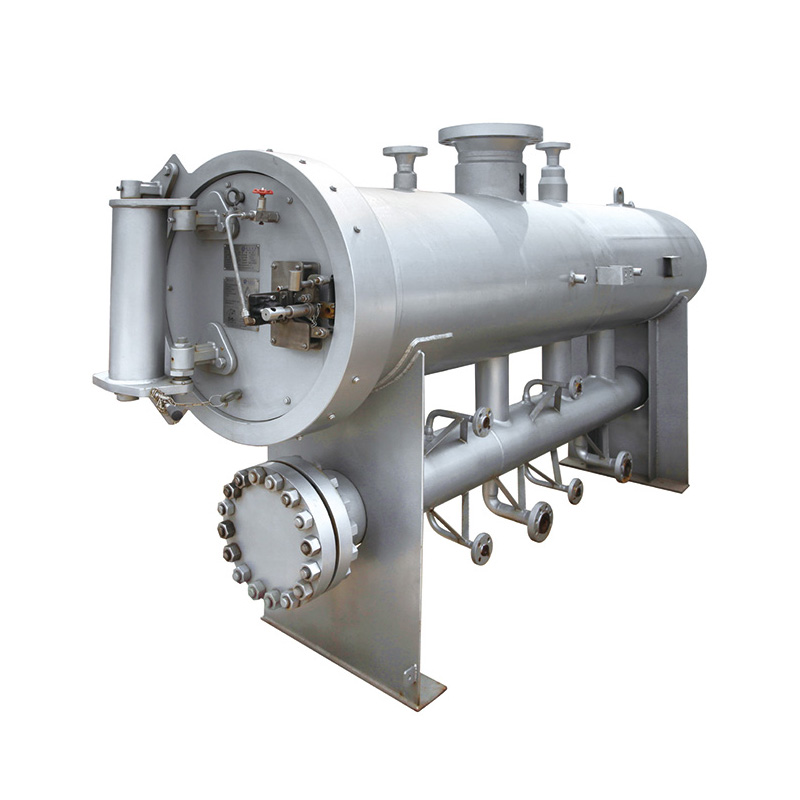
Nov . 25, 2024 16:27
Back to list
Natural Gas Filtration and Separation Solutions for Efficient Energy Processing
Understanding Natural Gas Filter Separators Functionality and Importance
Natural gas filter separators are vital components in the upstream and midstream oil and gas industry, playing a crucial role in ensuring the integrity and quality of the natural gas that is transported and processed. These devices serve a dual purpose they not only filter out impurities but also separate liquids from gas, significantly enhancing the operational efficiency of gas production and processing facilities.
What is a Natural Gas Filter Separator?
At its core, a natural gas filter separator is engineered to remove solid particles and liquid contaminants from natural gas streams. This is essential as impurities such as water, hydrocarbons, and particulates can cause corrosion, blockages, and operational issues in pipelines and processing equipment. By effectively filtering and separating these contaminants, these devices help maintain the purity of the gas and ensure the safe and efficient transport of natural gas.
The Working Principle
The operation of a natural gas filter separator can be broken down into a series of steps. When unwanted substances enter the separator, the gas stream first passes through a filter element designed to trap solid particles. This initial filtration is critical as it prevents wear and tear on downstream equipment. After the gas has been filtered, it enters a separation chamber where gravity plays a major role. In this chamber, the gas is allowed to rise while heavier liquid contaminants—like water and condensate—settle at the bottom. This gravitational separation allows for efficient removal of liquids, ensuring that only clean gas continues onward.
The separator typically features a drain valve at the bottom to allow for the removal of accumulated liquids. Depending on the design, these systems may also include additional equipment such as coalescers for enhanced liquid removal, further improving the quality of the separated gas.
Types of Natural Gas Filter Separators
natural gas filter separator

Various designs of filter separators are utilized based on specific operational needs and the nature of the gas being processed. Two common types include
1. Horizontal Separator - This design features a horizontal orientation, where gas enters from one end and exits from the other. The horizontal configuration allows for a larger surface area for the separation of liquids, making it suitable for applications with higher liquid volumes.
2. Vertical Separator - In contrast, a vertical separator holds a smaller footprint and is efficient for applications where space is limited. The upward gas flow and downward liquid flow in this type enhance separation efficiency.
Importance in the Industry
The importance of natural gas filter separators cannot be understated. By ensuring that only clean, dry gas is delivered to downstream processes, they help reduce maintenance costs, extend the lifetime of equipment, and minimize the risk of operational failures. Additionally, by improving the quality of the gas, these separators can enhance the marketability of the product, as higher purity levels are often required for regulatory compliance and customer satisfaction.
In an era of increasing environmental awareness and stringent regulations, the role of filter separators is expanding beyond traditional applications. Enhanced separation technologies contribute to the reduction of greenhouse gas emissions and the promotion of cleaner energy solutions. As the gas industry evolves, ensuring efficient and effective gas processing will be paramount, making the role of natural gas filter separators even more critical.
Conclusion
In conclusion, natural gas filter separators are indispensable in maintaining the quality and integrity of natural gas. Their ability to filter out solids and separate liquids is essential for the efficient operation of gas processing and transport infrastructure. As the industry seeks ways to improve efficiency and reduce environmental impact, filter separators will continue to play a key role in ensuring that natural gas remains a reliable energy source for the future. The continued development and implementation of advanced filter separator technologies promise to enhance the operational effectiveness of the gas industry, contributing to a more sustainable energy landscape.
Latest news
-
Safety Valve Spring-Loaded Design Overpressure ProtectionNewsJul.25,2025
-
Precision Voltage Regulator AC5 Accuracy Grade PerformanceNewsJul.25,2025
-
Natural Gas Pressure Regulating Skid Industrial Pipeline ApplicationsNewsJul.25,2025
-
Natural Gas Filter Stainless Steel Mesh Element DesignNewsJul.25,2025
-
Gas Pressure Regulator Valve Direct-Acting Spring-Loaded DesignNewsJul.25,2025
-
Decompression Equipment Multi-Stage Heat Exchange System DesignNewsJul.25,2025

